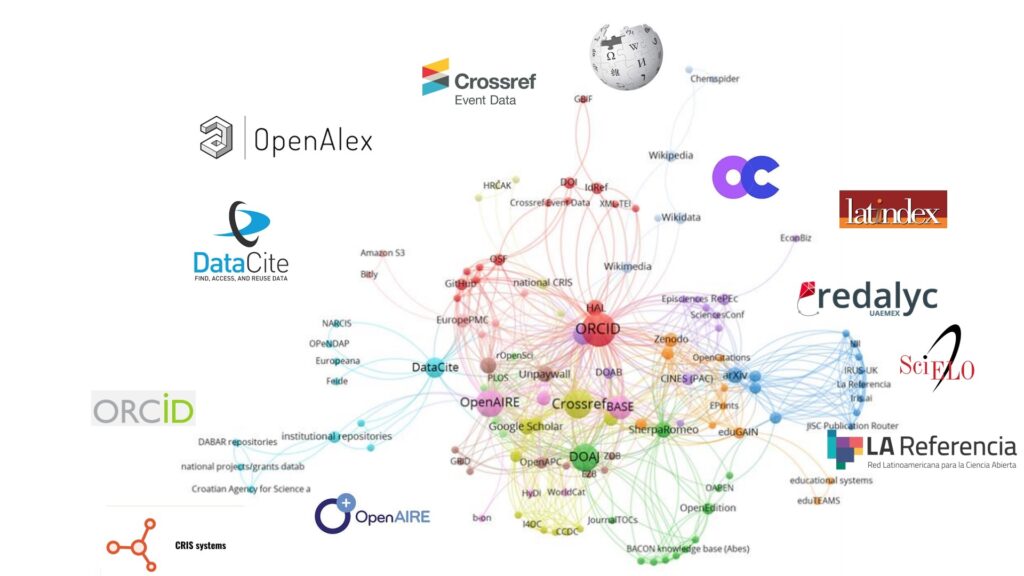
Towards Decentralised and Federated Research Information Sources
Towards Decentralised and Federated Research Information Sources https://opusproject.eu/wp-content/uploads/2024/04/header_image_bdori.png 880 320 Open and Universal Science (OPUS) Project Open and Universal Science (OPUS) Project https://opusproject.eu/wp-content/uploads/2024/04/header_image_bdori.pngThe Barcelona Declaration on Open Research Information underscores the necessity for research information systems to transcend mere openness by embracing diversity and inclusivity. It contends that achieving this goal necessitates the interconnection of decentralized research information sources.
Emphasizing Diversity and Inclusion in the Barcelona Declaration: The recent introduction of the Barcelona Declaration seeks to galvanize the global research community towards fostering open and accessible research information. While the argument for openness is compelling, asserting its importance alone falls short. The Barcelona Declaration acknowledges this shortfall, asserting that research information systems must also embody diversity and inclusivity, aligning with the UNESCO Recommendations on Open Science.
The Need for Diverse Information Sources: To achieve fair and comprehensive monitoring and evaluation, it’s imperative to mitigate biases present in mainstream sources, predominantly rooted in Western Europe and North America. These biases tend to marginalize scientific contributions from other regions, notably the Global South. The Barcelona Declaration elucidates this disparity, noting that decisions are often based on information biased against less privileged languages, geographical regions, and research agendas.

Incorporating multiple information sources is essential. Research information encompasses bibliographic metadata, as well as data on various research aspects like samples, materials, and funding sources. While an ideal single database covering global research might be envisioned, practical and cultural considerations render this unfeasible and perhaps undesirable. Therefore, leveraging diverse sources expands thematic, geographical, and linguistic scopes, enriching data and perspectives.
Arguments for Embracing Multiple Sources: Firstly, coverage across different regions remains inadequate in large databases like OpenAlex. For instance, regions where journals do not utilize DOIs, like Latin America, face significant coverage gaps. This challenges the assumption of universal standards in research information systems. Projects like the Decentralized Archival Resource Key (dARK) aim to address this by offering decentralized infrastructure compatible with existing PID systems.
Secondly, regional databases provide richer metadata and contextual understanding, enhancing research assessment. For example, platforms like Redalyc offer detailed curation and access to a variety of multimedia content, fostering a deeper understanding of localized research.
Thirdly, preserving a variety of sources fosters pluralism, accommodating diverse perspectives and preserving regional independence. This diversity guards against the dominance of larger or more influential groups, ensuring a more nuanced approach to research assessment.
Cooperation and Interoperability: The path to an open research information ecosystem involves collaboration among diverse sources, rather than replacing established platforms like Web of Science or Scopus. Interoperability agreements and communication protocols facilitate the integration of information from various sources, enhancing coverage and enriching metadata. This multiplicity enables a more nuanced understanding of knowledge across different contexts, fostering a plural and inclusive research environment.
The Barcelona Declaration advocates for the integration of information from diverse sources, recognizing the value of varied perspectives in decision-making processes. Similarly, initiatives like FOLEC stress the importance of including both international repositories and regional databases in research assessment.
In essence, the Barcelona Declaration underscores the importance of plural and interconnected research information sources in fostering openness, diversity, and inclusion. It serves as a catalyst for ongoing efforts towards this collective goal.
Babini, D., Garcia, A. B., Costas, R., Matas, L., Rafols, I., & Rovelli, L. (2024). Not only Open, but also Diverse and Inclusive: Towards Decentralised and Federated Research Information Sources. Leiden Madtrics. https://doi.org/10.59350/gmrzb-e2p83
- Posted In:
- Open Science News




